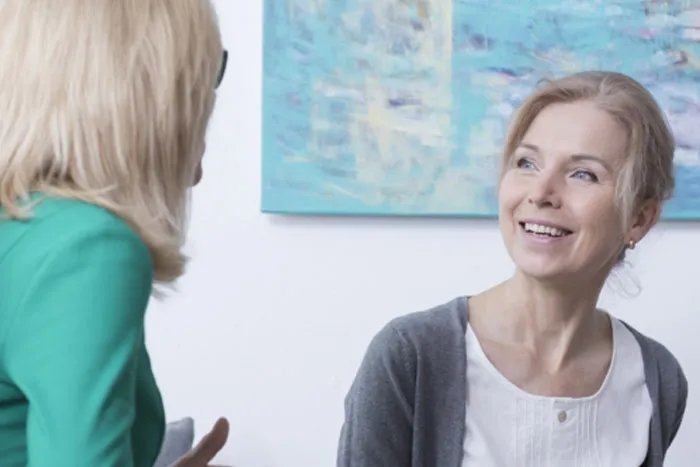Cognitive behavioral therapy for insomnia
CBT-i: Better than sleeping pills
Have you heard of the age-old cure to count sheep if you cannot sleep? If you are reading these lines, it most likely has not worked for you. And for good reason as spending more time awake in bed if struggling to fall asleep will likely worsen the problem. The good news is that you are not alone. About 3.7 million Canadians struggle with insomnia while more than 9 million are dissatisfied with their sleep.
What is insomnia?
Insomnia is one of the most common complaints in primary care. It can make it hard to fall asleep, hard to maintain sleep overnight or fall back asleep, or cause you to wake up too early. Insufficient sleep can affect one’s cognitive performance, alertness, or neurobehavioral function the next day. In the long run, chronic sleep deprivation increases risk of accidents and workplace errors, all-cause mortality, cardiovascular disease, and obesity. It has also been linked to immunosuppression and decreased quality of life. Insomnia is unlikely to resolve on its own. Most cases will require an evaluation and treatment plan by a trained health care provider.
What is cognitive behavioural therapy for insomnia (CBT-i)?
Sleep is a strong and highly regulated physiologic drive that can, however, be easily disrupted by multiple factors. Managing these factors is at the core of cognitive behavioural therapy for insomnia (CBT-i). CBT-i is a validated form of psychotherapy using behavourial conditioning, cognitive restructuring, and sleep hygiene principles to effectively treat insomnia. Sleep improves significantly for about 80% of patients; they sleep significantly longer and better after the intervention. The success of CBT-i depends ultimately on the patients’ willingness to comply with treatment recommendations
How does CBT-i work?
CBT-i is a multimodal, structured program that helps you reflect on the link between what you think, what you do and how you sleep. Five main pillars of CBT-i are used to tackle insomnia, as listed below.
- Sleep consolidation: People struggling with sleep often spend more time in bed trying to sleep which worsens the problem. Sleep consolidation (also known as sleep restriction) is a behavioural approach to limit the time spent in bed to the time spent sleeping.
- Stimulus control: Another behavioural approach that works on creating and strengthening a positive association between the bed, the bedroom, nighttime, and sleep.
- Relaxation training: Relaxation is used as a tool to set the stage for sleep. Relaxation slows down brain wave pattern hence preparing the brain for sleep. Different relaxation techniques can be used.
- Cognitive therapy: In the past, sleep just happened but after struggling with insomnia for a while, beliefs about sleep change and the mind gets bombarded with sleep-interfering thoughts. During therapy, automatic thoughts are identified, their impact on sleep is understood and alternative, sleep-promoting thoughts are explored.
- Sleep hygiene: This approach explores health practices and environmental factors that can promote better sleep.
Are sleeping pills more effective?
Sleeping pills are often prescribed in patients complaining of insomnia symptoms. In some cases (e.g., period of high stress or grief), they can be an effective short-term treatment to provide rapid relief. Most sleeping pills are however not approved for long-term use. Unlike CBT-i, sleeping pills do not treat the root problem of insomnia. They also come with a myriad of undesirable side effects and drug interactions. The focus of CBT-i is to identify and overcome those modifiable, underlying insomnia causes. Just like prescription sleeping pills, CBT-i is a first line therapy for insomnia; however, research has shown that sleep improvements are sustained over time, a clear advantage compared to sleeping pills. Patients also generally prefer CBT-i over sleeping pills.
I regularly take a sleeping pill to fall asleep. Can I do CBT-i at the same time?
Yes! Both treatments can be combined; however, patients should be careful as relying on a sleeping pill can take away the self-efficacy CBT-i helps them develop. Some patients also decide to taper or stop their sleeping pill while undertaking CBT-i as they acquire other tools to find sleep. Stopping a prescription sleeping pill should only be done under medical supervision as your physician may have prescribed that drug for other reasons too.
Who is a good candidate for CBT-i?
All adults with insomnia symptoms can benefit from CBT-i. There is also growing evidence that CBT-i is highly effective in teenagers struggling with insomnia. People with insomnia and physical disorders (e.g., chronic pain) or mental health issues (e.g., depression, anxiety, PTSD) also benefit from CBT-i; not only do their sleep will improve for most but also their other medical conditions are likely to improve too (e.g., less pain, better mood, etc.). Patients that are dealing with bipolar disorder, seizures, parasomnias or untreated obstructive sleep apnea can also undertake CBT-i; however, their program and progress should be individualized and closely monitored by a trained health care provider. Before undertaking CTBT-i it is necessary to have a thorough sleep assessment in order to identify underlying medical conditions, other sleep disorders and/or drug side effects that could be affecting your sleep. Book your sleep consultation with our expert team now. With our CBT-i program you will develop the tools and acquire the skills to break old patterns and habits that interfere with your sleep, and get your sleep back. No need to count sheep anymore!
Relevant OHIP-funded Group Counselling
CBT-i services offered in...

Medical Assessment
OHIP-funded medical assessments for behavioural & lifestyle interventions





